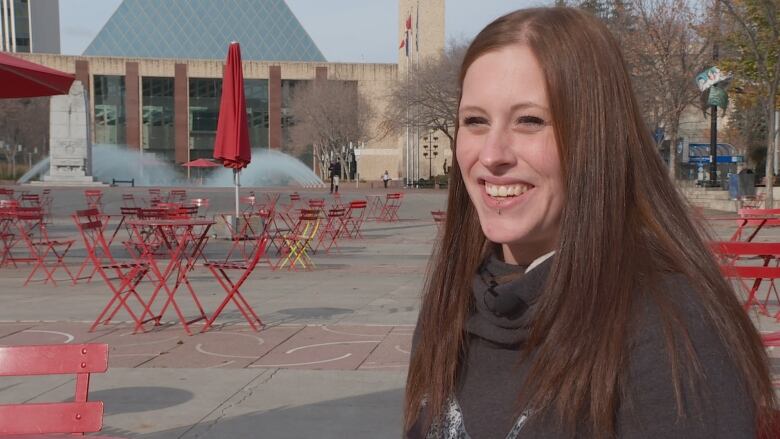Canada's youth court cases drop to unprecedented low
Youth workers urge government to keep up momentum with more funding for crime prevention

Edmonton youth workers are eager to spura downward trend in Canada's youth crime statistics.
The number of youth court cases completed in Canada dropped to an unprecedented lowduring a 12-month period ending in 2015, according to a new report byStatistics Canada.
Roughly 33,000 cases were completed in Canada's youth courts during that time, down19 per centfrom the previous year. It's the lowest recorded number since Statistics Canada began collecting youth court data more than two decades ago.
Alberta ranked in the three provinces with the greatest drop in completed youth court cases, with a 29-per-cent decrease from the previous year.
Youth workers in Edmonton are calling on the government to continue that momentum with increased funding for crime prevention programs.
"There's a lot of hope with young people and their trajectories haven't been established yet,"said MarkCherrington, a youth worker withLegal Aid Alberta'sYouth Criminal Defence Office.
The Urban Games
Cherrington knowsfirsthandthe potentialof youth crime prevention programs. He spearheaded a pilot project called Urban Games in Edmontonfive years ago.
Instead of hiringadults to create youth programs, Cherrington said he wanted to let young people take charge of their own intervention.
He worked with social agencies to employ a group of underageEdmontonians,all deemed to be at-risk of becoming entrenched in crime.

MichelleIrsheid, one of the participants,said the program turned her life around.
"Before the Urban Games, my life was pretty much a struggle," the 24-year-old said.
Irsheidwas taken into foster care at age 13 and then bounced between the streets as well asfoster and group homes for nearly a decade.
She developed alcoholism during that time, an addiction she fed by stealing from liquor stores.
After being arrested for theft at17,Irsheidwas paired with a youth worker Cherrington. He helped her apply for the Urban Games.
"I didn't really have people always there for me, and once I entered the Urban Games it was like I had this whole team behind me," she said.
"You need that support system to move forward when you're younger."
Being in the program and having all these people support youyou didn't feel alone anymore.- Michelle Irsheid
Irsheiddecided to use the opportunity to explore her passion for writing. She showcased her progress by hosting acommunity workshop to help others express emotion through poetry.

"I didn't care about myself and whatever happened to me, happened to me. I didn't think I was going to make it past 20 with the lifestyle I lived," she said.
"Being in the program and having all these people support youyou didn't feel alone anymore."
After the Urban Games ended,Irsheidfinished high school and successfully applied toMacEwanUniversity.
She now studies correctional services and plans to become a youth worker.
"My outlook on life has changed completely. I would have never guessed that I'd be where I am today."
'You need dollars'
Between2009 and2011, youth workers guided Irsheid and her fellow participantsthrough the Urban Games.
"Creating that mentor-rich environment was a key piece," said Kelly Micetich, one of the program's coaches.

Micetichpoints tothe financial benefit of preventing young offenders from growing into adultcrime. She calculated how much money the participants would have cost the justice system without an intervention $1.1 million combined.
The federal government pooledresources with the province and the cityto fundthe Urban Games, investing$540,000 into the two-year program.
"It was crazy. It was unbelievable how much money was actually physically saved," Micetich said.
Funding for the program was never renewed. Now,Micetich said she wants alllevels of government to consider reviving or emulating the Urban Games to help continue the current decrease in youth crime.
"You need dollars to do that and that's the piece that we need government to do more of," she said.
"Putting dollars into that does save society money and in the long run creates a healthy group of youth."












_(720p).jpg)


 OFFICIAL HD MUSIC VIDEO.jpg)
.jpg)



























































































